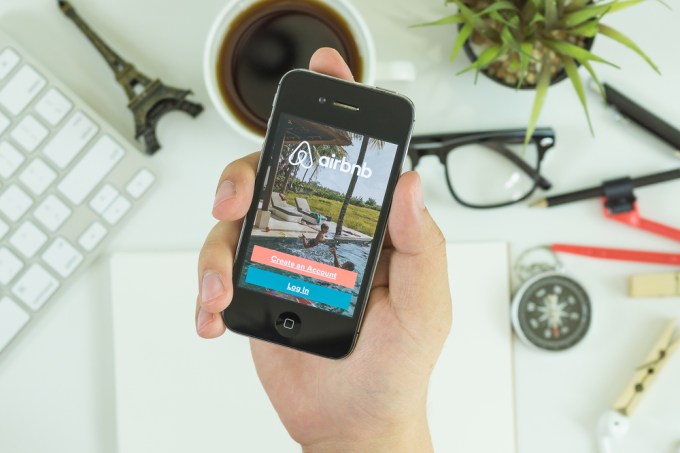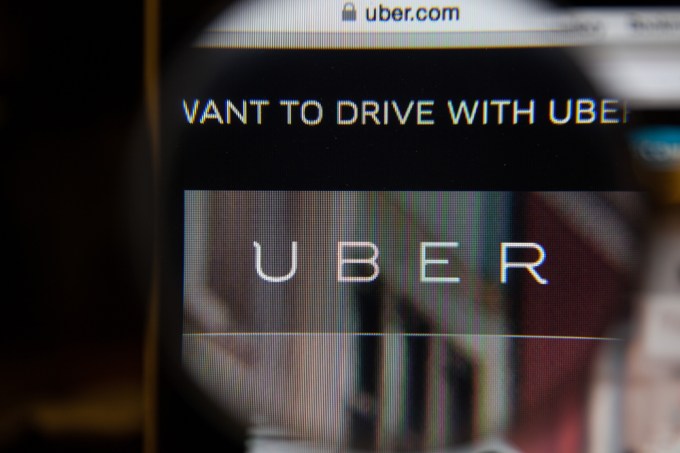I spent a good part of my day yesterday attending the On-demand Economy conference at MIT. It was an interesting if somewhat academic look at the changes facing us as individuals, organizations and as a society as we shift to an on-demand world.
What struck me beyond how this new way of doing business is affecting us, was how technology was driving this change — and that the speed of change was so rapid that it seemed even the speakers had a hard time grappling with it. But what really hit me as I listened to the guests talk about all of this was that digital disruption was changing every aspect of the system from the organizational level to where and how we work to the laws and systems we have in place, most of which are entirely inappropriate in an on-demand world.
On-demand for those of you not up on the current lingo refers to services like Uber, Postmates or Airbnb. Each provides a digital platform to give instant access to a taxi, delivery or room rental. In the case of Uber and Postmates, it hires people to provide the service (with their own vehicles). With Airbnb, it is a direct transaction between the owner and the renter using the owner’s home.
Disrupting business
Businesses deal with disruption in a variety of ways, but those affected by on-demand seem to realize now that these new digital platforms are an actual threat. In January San Francisco’s biggest taxi company filed for bankruptcy. Bear in mind this is a protected municipal monopoly that up until several years ago faced no competition whatsoever. The heady world of digital delivery changed all that as ridesharing services like Uber and Lyft have taken a serious bite out of long-established businesses.
In the days before digital disruption, you stood on the corner and hailed a taxi or booked a hotel room. You might have called your favorite restaurant for delivery and it might have offered such a service or not.

The intersection of cloud and mobile changed everything. With a computer in our pockets, the introduction of app stores and access to cheap cloud services, clever people came up with these platforms (and many others like them) and it has fundamentally changed businesses and created whole new ways of working.
All of that is having a profound impact on us as we struggle to keep up with the changes they bring. For the taxi and hotel businesses, what started as an irritant is becoming a full-fledged threat to their business models.
Disrupting us
There is something else happening here. Even as organizations are being disrupted, so are we and what’s changing is the way we work (and expect to work).
There have been a range of responses from individuals to digitization of certain industries — and if it hasn’t happened to yours yet, expect it to soon. Taxi drivers have felt the change most directly from ride sharing. They have reacted with strikes and sometimes with violence, illustrating that it’s not just the industry itself feeling the full weight of disruption, but also the individuals who work in it in a very direct way.
Yet even as taxi drivers feel the sting of competition, many others are joining the ranks of Uber drivers. Every time I get in an Uber I ask the driver why they do it and if they like it and in most cases people like the model. Some do it to supplement a full-time job, while the majority earn their living from Uber.

These folks have the advantage of working on the digital platform that Uber created for them. They have flexibility to work as much or as little as they want. They simply turn on the app when they want to work and they start picking people up. If they don’t want to work, they turn it off.
While people clearly love the flexibility that this work style brings, companies like Uber, which has a valuation of over $60 billion rake in the dough. Clearly drivers are making a trade-off for that flexibility — and that comes with a lack of benefits, a condition that did not escape the parade of speakers at yesterday’s conference. It’s great to work when you want, but it’s not so great when you don’t get paid because you got the flu or hurt your back.
It’s worth noting that while Uber is a highly successful example of this work model, it is hardly the only digital platform operating this way.
Disrupting institutions
Meanwhile governments struggle to keep up. Sometimes they want to protect the incumbent industries. Sometimes they want to encourage innovation. Whatever they do, they tend to react much, much too slowly to technological changes. As technology speeds along, we are stuck with antiquated systems that fail to meet the needs of today’s businesses or the way we work.
Just as technology and the digital platforms that we are creating are changing these industries and the way individuals work, it’s also have a huge impact on the systems we have put in place that have been tied to a traditional way of working.
We see this playing out in a number of ways. Employees lack any benefits in this new system, prompting speakers to suggest that perhaps we require a benefits package that isn’t tied to our employer. Emergency systems like unemployment insurance spend too much time and money trying to find cheaters instead of helping people achieve their goals and find meaningful work.
It’s hardly surprising that the unemployment insurance system, which was created in the 1930s at a time when most people worked for the same company their entire lives would no longer be adequate in 2016 in a world where people change jobs frequently and often don’t have a traditional relationship with an employer.
But it is no simple matter to modernize these systems as politics muddies the waters and everyone has different ideas of how this should work in the brave new world of work.
For now, in the middle of the muddled mess it’s hard to find definitive answers to these tough issues. As one speaker pointed out for the foreseeable future, the vast majority of people will continue to work in the traditional way, but tens of thousands of others will work in a freelance capacity like those Uber drivers without any benefits or safety net — and that’s not a sustainable model.
If technology is driving all this change, perhaps we can find answers in building digital platforms that address these issues and give people a central place to deal with them in a modern context. While there are many benefits in using these services, there are many implications too and we need to come to grips with the changes digitization brings because it’s having an impact on every aspect of our lives.































Comment